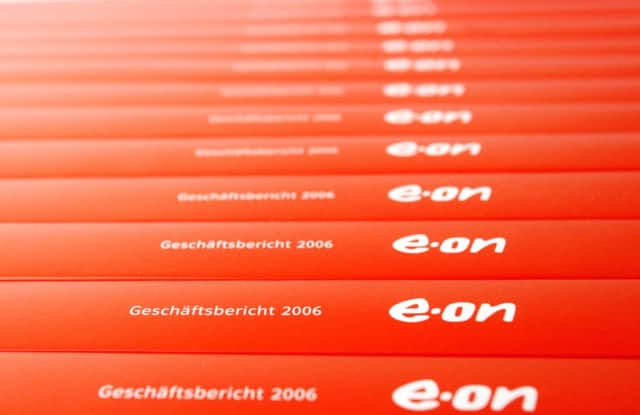E.ON joins North Sea exodus


Reports at the weekend suggested E.ON has asked Bank of America Merrill Lynch to find buyers for its interests, which are spread out across the various sectors of the North Sea.
The assets will join a crowded marketplace with about £6bn-worth of stakes in fields and licences already on offer from supermajors such as BP, ConocoPhillips, Shell and Total.
Advertisement
Hide AdAdvertisement
Hide AdSome large firms had been exiting UK waters even before the dramatic collapse in oil prices from more than $100 a barrel last summer to less than $60 today. With production in decline and many fields maturing, UK waters are increasingly being drilled by smaller, specialist firms.
Potential buyers looking at picking up assets such as E.ON’s include new exploration and production firm Siccar Point Energy, according to reports.
Investment in new projects and infrastructure has dried up in the oil industry in recent months in response to the plunging price of crude, and that threatens to exacerbate the decline in production in years to come.
Hundreds of jobs have already been axed amid the slide in Brent crude prices, which have halved since last summer, and thousands more remain at risk, but industry leaders believe the outlook would have been much more bleak had George Osborne not announced a £1.3bn package of tax breaks on Wednesday.
Delivering the Budget, the Chancellor said the UK government would reduce petroleum revenue tax from 50 to 35 per cent next year to encourage investment in older fields, while the supplementary charge on ring-fenced products was immediately cut from 30 per cent to 20 per cent.
Sir Ian Wood, who led a government-commissioned review into squeezing the most out of the UK continental shelf, says reductions in the petroleum revenue tax and supplementary charge “undoubtedly improves the viability of a significant number of potential field developments and should get new field investment flowing as the oil price recovers”.
Wood has now revised down his estimate of likely job losses in the industry to less than 10,000, out of the 380,000 currently employed in the sector. He had previously warned that up to 100,000 North Sea jobs could have been lost over the next two to three years.
News of E.ONs’ exit will surprise few in the industry as the firm had already announced a strategic review of its upstream activities and indicated that it preferred to focus on renewable energy.
Advertisement
Hide AdAdvertisement
Hide AdIt comes after the boss of explorer Faroe Petroleum told Scotland on Sunday that the Budget measures alone are not enough and the sector needs to tackle its ballooning costs.
Graham Stewart, who was instrumental in founding the Aberdeen-based company in 1998, says standardising equipment would help to push through “massive” cost reductions in an industry that has been battered by the fall in crude oil prices.
He said: “If the oil price stays low, which it’s possible it will do, the only way the North Sea is going to be able to make money is if the costs are much lower than they are today.”
SUBSCRIBE TO THE SCOTSMAN’S BUSINESS BRIEFING